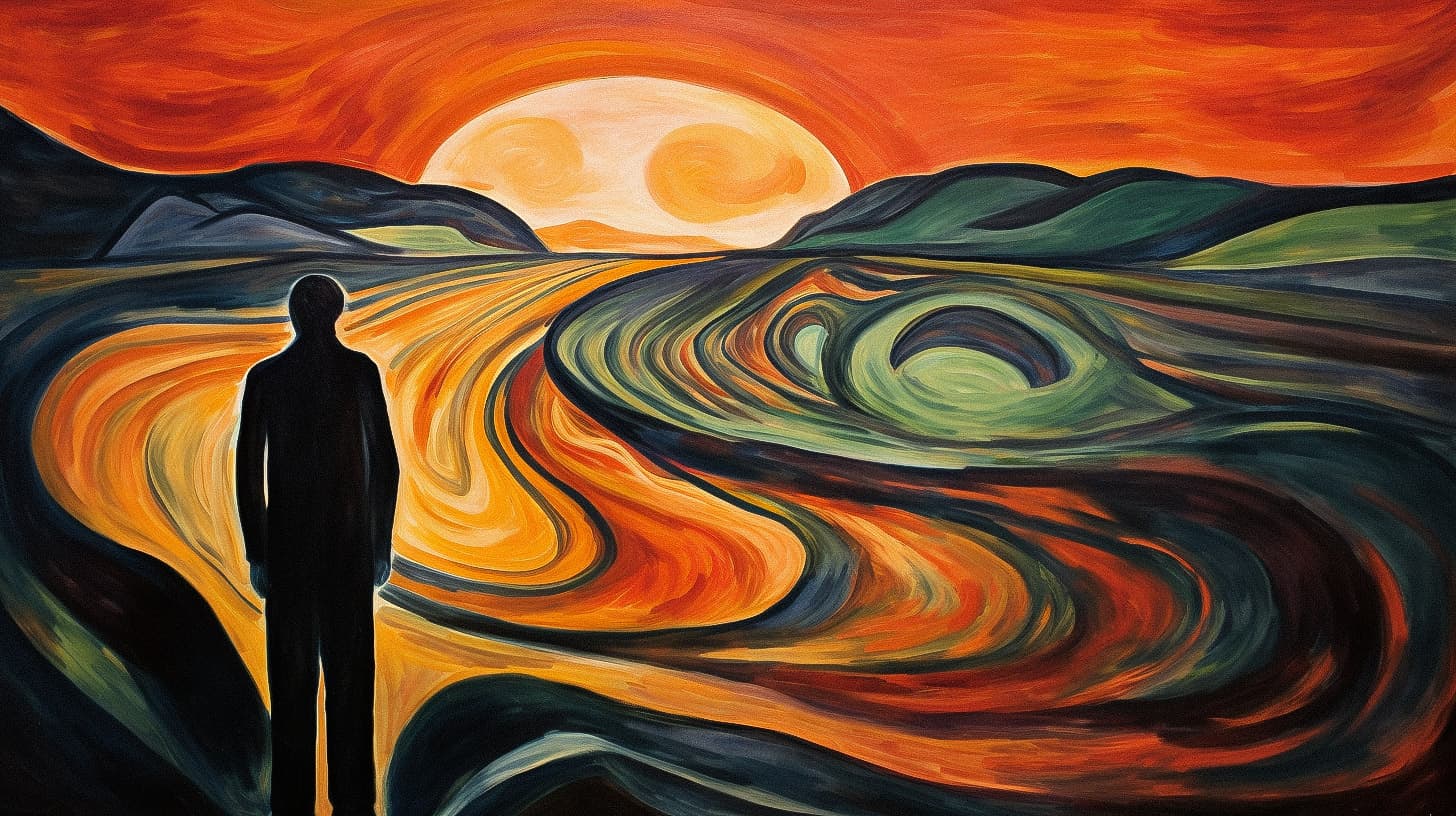To walk through life as an atheist is to carry the burden of both freedom and fragility. There is no script, no grand design to follow—only the choice to create purpose and hold onto what is beautiful, even as the inevitability of loss whispers in the background.

I was born in a communist country in the family of a philosopher, where nothing – not the general doctrine of the party nor the personal convictions of my ancestors have pointed beyond the material existence. I never gave it much thought before I started practicing as a psychotherapist and encountered profoundly different worldviews, valid worldviews, some of which were deeply spiritual. With the convictions of a young Richard Dawkins I was bound to achieve nothing, I had to understand the nature of faith and its significance for everyone I saw. It made me wonder why and how spirituality makes people more connected and resilient, at least according to multiple studies and my observations.
It is also true that many of my clients for one reason or another have lost their faith and as a therapist, I am always open to understanding the pain of the particular individual. Yet, I always wonder (for theirs and my sake) what sources of faith we can tap into. In my personal life, I found myself in a crisis of my Ego. It couldn’t fuel more than my survival. I needed answers! How can we be less faithless if we don’t believe? If faith is a word that often drapes itself in the robes of religion, anointed with the names of gods and the promises of an eternal beyond what kind of faith is left for us – the skeptics? What happens to faith when the heavens are silent, when prayers dissolve into the void, and the certainty of divine purpose is a story one cannot embrace? For the atheist, faith is not a matter of miracles or sacred texts; it is a quiet, fragile thread that binds us to the mystery of existence. It is a kind of faith that blooms in the cracks of certainty, tender and resolute, born not from celestial promises but from the deep ache of being human. Upon a long search, I encounter a few directions in which we can search for faith:
Faith in Humanity or believing in the potential for people to act with kindness, compassion, and altruism even in challenging circumstances. Actionable steps are: supporting causes or movements to make the world a better place, trusting that collective effort can create positive change.
Faith in Science and Progress – having confidence in the scientific method, innovation, and the human ability to solve problems; trusting that advancements in technology, medicine, or education can improve the quality of life for future generations.
Faith in Relationships – experiencing faith in the love, loyalty, and support of friends, family, or partners. Trusting in the power of human connections to bring meaning and resilience in life.
Faith in Personal Potential and believing in one’s own ability to overcome obstacles, grow, and achieve meaningful goals; trusting that hard work, perseverance, and self-discovery will lead to fulfillment.
Faith in Nature or feeling awe and wonder at the complexity and beauty of the natural world, which can evoke a sense of connection and trust in life’s cycles; believing in the resilience of ecosystems and the interconnectedness of all living things.
Faith in Ideals or Values – holding onto principles such as justice, equality, or freedom as guiding lights in life and trusting that living in alignment with these values makes life meaningful, even if their ultimate success isn’t guaranteed.
Faith in the Unknown – accepting uncertainty with curiosity rather than fear, trusting that not all answers need to be known for life to be worthwhile; feeling wonder at the vastness of the universe and the mysteries of existence without needing definitive explanations.
Faith in the Power of Stories and Art, drawing inspiration and comfort from literature, music, and other forms of artistic expression that speak to universal human experiences; trusting that creative endeavors can help navigate and make sense of life’s challenges.
I embrace all these ways of seeking and have personally immersed myself in exploring the vastness of the universe, awestruck by the immensity of space-time. I have marveled at the wonders of human civilization, both ancient and modern, and drawn inspiration from stories of the human spirit overcoming the greatest hardships—emerging unbroken, wearing the scars of injustice with pride. I have delved into the works of existentialists, positive psychology researchers, psychoanalysts, and art theorists. Yet, faith remains deeply personal, inextricably tied to my own history. My search is uniquely mine, unshaped by anyone else’s path. This understanding inspires my work with those seeking meaning—the recognition that there is no definitive method or roadmap. Meaning is always temporary, precariously constructed, and destined to fall, only to be rebuilt again and again.
After all this incessant search, the faith of the atheist is not faith of cathedrals or commandments, but the faith that tomorrow will dawn even when today is cloaked in shadows. It is the trust in human kindness when cruelty seems to dominate, the belief in love’s quiet persistence even as it falters, and the hope that meaning can be forged in the furnace of our fleeting lives.
